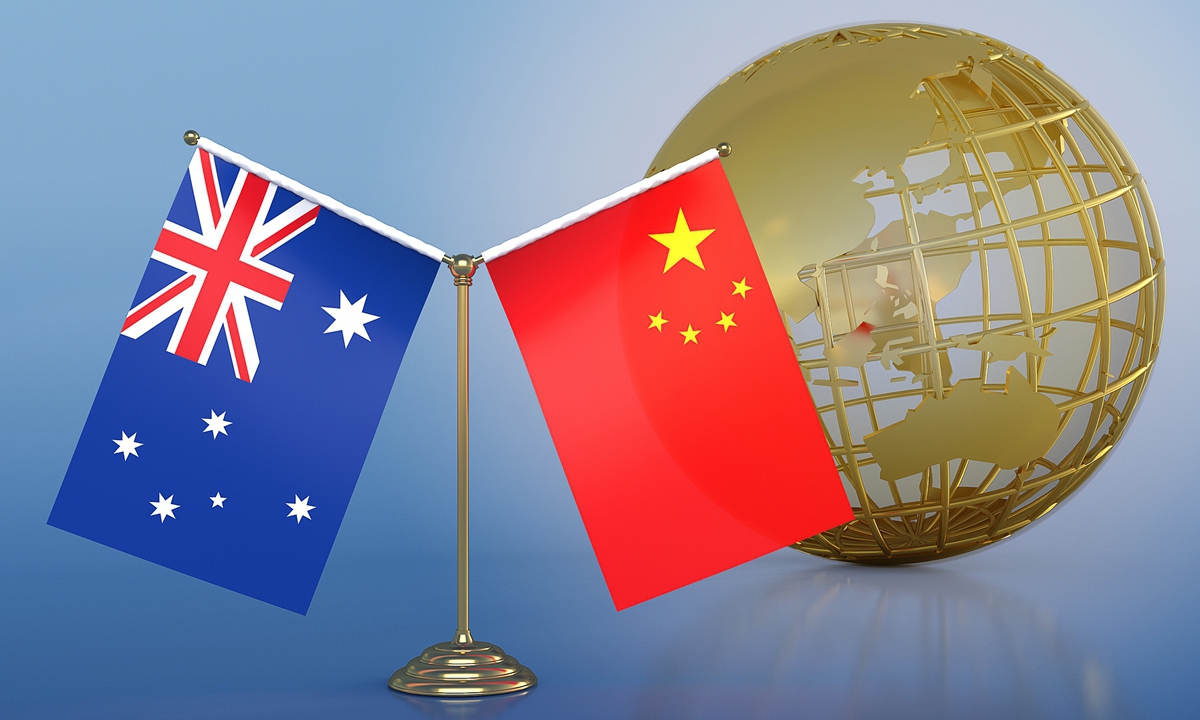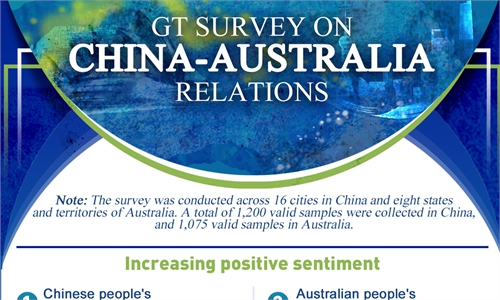
China Australia Photo: CFP
Chinese Premier Li Qiang said during his visit to Australia on Monday that China will include Australia in the list of unilateral visa-free countries, the Xinhua News Agency reported on Monday, which immediately sparked wide attention and cheerful responses from the wide Australian community.
Li made the remarks during a joint press meeting with Australian Prime Minister Anthony Albanese.
Australian business representatives in China and Chinese experts said that the visa-free policy from China for Australian residents sends a positive message that will enhance bilateral relations through people-to-people exchanges.
The two countries also agreed to review and issue multiple-entry visas for three to five years to each other's tourists, business visitors and family members, Xinhua reported on Monday.
AustCham sees these new visa policies as a positive development that will enhance bilateral relations through people-to-people exchanges and greatly facilitate business exchanges and collaboration between our two nations, Vaughn Barber, AustCham China chair, told the Global Times in a written interview on Monday.
"We believe these policy changes will not only boost business interactions but also contribute to the overall stability and development of the Australia-China relationship," Barber said.
The ability for Australian passport holders to enter China without a visa will undoubtedly increase short-term business trips, fostering more frequent and flexible in-person engagements between Australian businesses and their teams, business partners and other stakeholders in China, Barber said.
"Likewise, reciprocal access to multi-entry visas of up to three to five years' duration will provide Australian companies with greater flexibility to support the development of their China business," Barber said.
In just half an hour after the news about the visa measure was announced, the number of Australian tourists searching for China-related keywords on international tourism platform Trip.com increased by more than 80 percent compared with the previous day.
Popular destinations in China for Australian tourists include Shanghai, Beijing, Chengdu in Southwest China's Sichuan Province, and Guangzhou and Shenzhen in South China's Guangdong Province, according to data from Trip.com.
The visa-free policy not only boosts business interactions but people-to-people interactions.
"This is fantastic news for our family. We try to visit China each year to see our family and, like most international trips, applying for visas can add an extra layer of stress and uncertainty. I'm thrilled that we can have a smoother process," Tom Fearon, a government employee in Canberra, told the Global Times on Monday.
Fearon lived in China from 2009-2017, and has been married to his Chinese wife, Xiaojing, since 2012. They have a daughter, Miya, who is 10 years old.
"As an Australian who has benefited enormously from my own personal connection to China, I'm also hopeful more Australians will take an interest in visiting China and experiencing the country and culture for themselves. It's a positive development and one I hope facilitates a better understanding of each other," Fearon said.
These visa policy measures are significant for the bilateral relationship, Chen Hong, director of the Australian Studies Center at East China Normal University, told the Global Times on Monday, noting that people-to-people interactions play an important role in the great improvement in bilateral relations.
Following adverse disruptions by the former Morrison government in recent years, bilateral relations reached a stalemate. However, people-to-people exchanges have continued throughout this process, according to Chen.
"China's unilateral decision to grant visa-free access for Australians demonstrates its high regard for various levels of communication in bilateral relations and reaffirms China's opening-up to the outside world," Chen explained.
Both China and Australia clearly hope that through such practical measures, various levels of exchanges can be promoted, particularly in the economic, trade and tourism sectors, Chen said.
"In this regard, Australia's full responsive cooperation is also needed," Chen noted.



